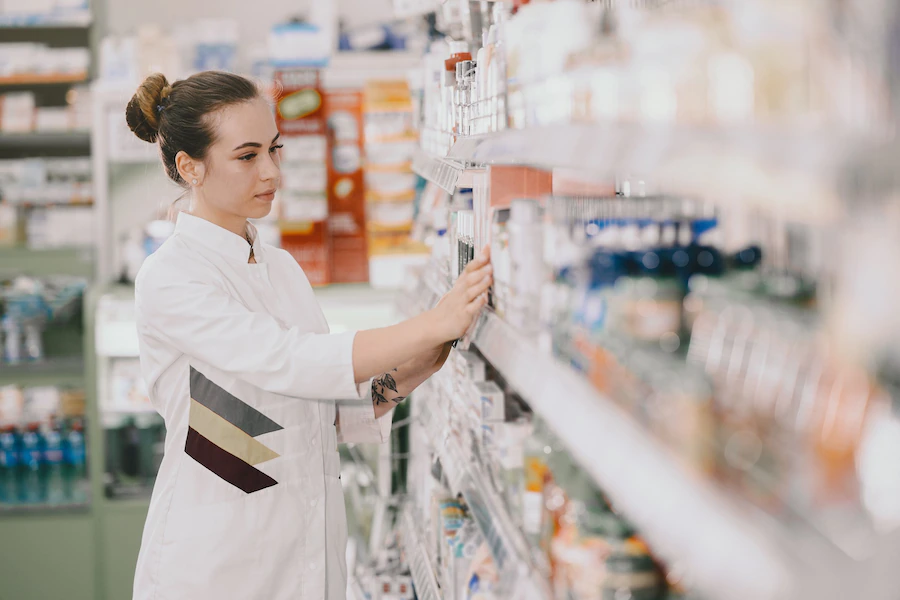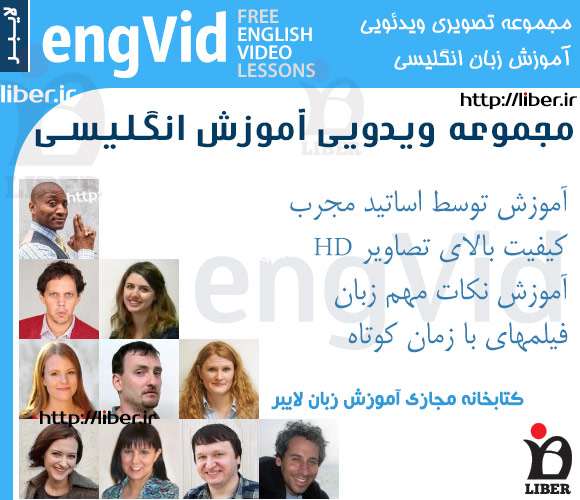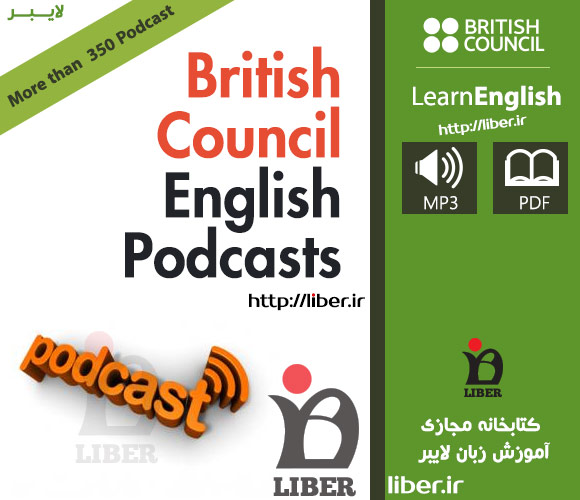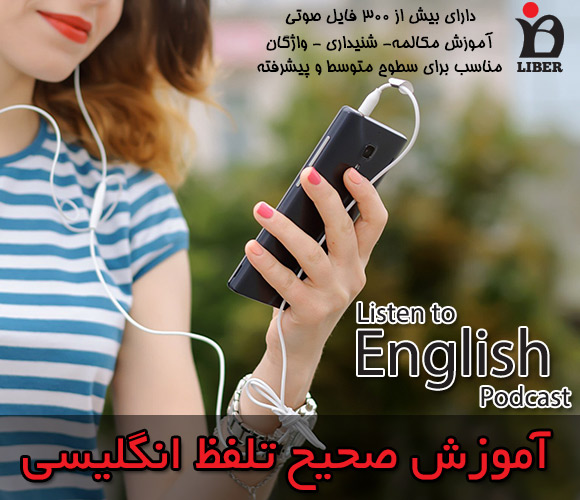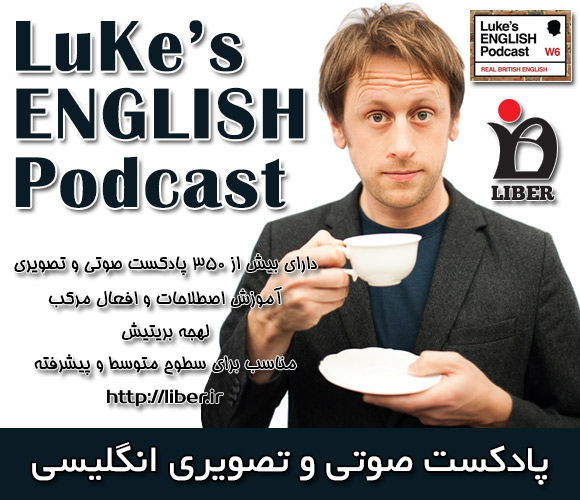موضوع این درس مکالمه انگلیسی داروخانه است. معنی انگلیسی داروخانه Pharmacy و Drugstore است. تفاوت بین این دو واژه را بعدا توضیح خواهیم داد. با مطالعه مکالمه امروز با بسیاری از اصطلاحات انگلیسی داروخانه آشنا خواهید شد. اکنون مکالمه انگلیسی را گوش دهید و لغات مهم آن را مرور کنید.
پیشنهادهای ویژه
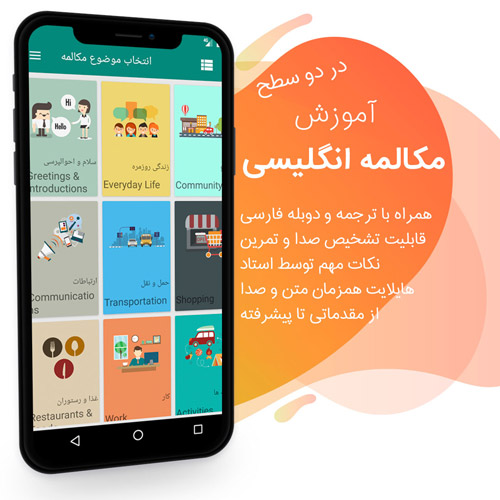
نرم افزار آموزش مکالمه انگلیسی (ویژه اندروید)
با قابلیت تشخیص صدا و ترجمه فارسی
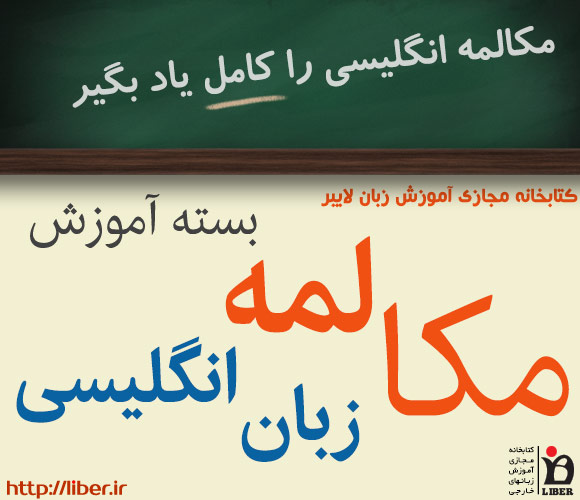
بسته کامل آموزش مکالمه زبان انگلیسی
شامل مجموعههای ویدویی و صوتی
🗣 At The Pharmacy (در داروخانه)
A: Hello sir, how can I help you?
سلام قربان، چطور می تونم کمکتون کنم؟
B: Yes, I need this prescription please.
بله، من این نسخه رو می خوام لطفا.
A: Let’s see. Okay, so 50 mg of Prozac, would you prefer this in capsule or tablet?
بزارید ببینم. بله، پس پروزاک 50 میلیگرم، ترجیح میدید کپسول باشه یا قرص؟
B: Capsules are fine.
کپسول خوبه. (بهتره)
A: Okay, you should take 1 capsule 3 times a day.
اوکی، شما باید 1 کپسول 3 بار در روز بخورید.
Be sure not to take it on an empty stomach, and also, don’t ever mix it with alcohol!
حواستون باشه با معده خالی نخوریدش، همچنین، به هیچوجه با الکل قاطیش نکنید (همزمان نخورید)
B: Yes, I know. It’s not the first time I’m taking this! Don’t worry, I won’t overdose!
بله، می دونم. این اولین بار نیست این [قرص] رو می خورم! نگران نباشید، اوردوز نمی کنم!
A: Okay, anything else I can get you?
خب، چیز دیگه ای میخواهید براتون بیارم؟
B: Oh, yes, I almost forgot! Can I also get some eye drops and um, some c*?
اوه بله، داشتم فراموش می کردم! می تونم تعدادی قطره چشم و ام… تعدادی کاند* بگیرم؟
A: Sure. Darn c* aren’t registered in our system.
حتما. کاند* های مسخره در سیستم ما ثبت نشده اند.
B: Oh, well that’s okay, I’ll get some later, thanks… Really it’s no problem.
اوه، خوب اشکال نداره، بعدا می خرم، ممنون… واقعا مهم نیستند.
A: Just hang on there a sec. Can I get a price check on ” Fun Times Ribbed C*” please!
یه لحظه صبر کنید. (بلندگو) می تونم قیمت “کاند* های خاردار اوقات خوش” رو داشته باشم؟
🗝️ لغات انگلیسی مهم مکالمه
🔹 prescription: نسخه دکتر
🔹 milligram: میلیگرم، واحد اندازه گیری وزن
🔹 capsule: کپسول
🔹 tablet: قرص
🔹 overdose: اوردز، داروی بیش از اندازه خوردن
🔹 eye drop: قطره چشم
🔹 hang on: صبر کن
🔹 get a price check: بررسی و چک کردن قیمت چیزی
🔹 syringe: سرنگ
🔹 cough syrup: شربت سینه (cough=سرفه)
🔹 bandage: بانداژ، نوار زخم
🔹 hydrogen peroxide: سفید کننده (وایتکس)
🔹 ointment: پماد
🎯 نکات درس
تفاوت Pharmacy و Drugstore و Chemist
واژه Chemist لغت انگلیسی داروخانه در زبان انگلیسی بریتیش و معادل Drugstore در آمریکا است. اما در لهجه آمریکن Pharmacy و Drugstore کمی تفاوت دارند. Drugstore به مغازه ای گفته می شود که دارو و لوازم آرایشی در آن به فروش می رسد. اما Pharmacy به بخش داروخانه گفته می شود که در داخل یک دراگ استور یا حتی سوپر مارکت یا بیمارستان است و داروی همراه با نسخه در آن عرضه می شود. همچنین مثلا در بیمارستان یا سوپرمارکتها (در ایران مرسوم نیست اما در آمریکا هست) بخشی که دارو در آن فروش می رسد Pharmacy گفته می شود اما اینجا خبری از Drug store نیست. همچنین باید این نکته را گفت که در مجموع در سالهای اخیر معنی انگلیسی داروخانه Pharmacy است که بیشتر از Drugstore رواج پیدا کرده است.
- منبع : دیکشنری کالینز
معنی کلمه Get در مکالمه
یکی از مواردی که باید دقت کنید، سعی کنید معنی های مختلف واژه های مختلف، به خصوص افعال پرکاربرد مانند get را یاد بگیرید. یکی از اشتباهاتی که زبان آموزان تازه کار انجام می دهند، این است که تنها یک معنی برای یک کلمه یاد میگیرند (اصلی ترین معنی آن واژه را) و سپس بدون دقت به مفهوم جمله (context) آن معنی را برای آن کلمه در نظر می گیریند. به عنوان مثال در این مکالمه دو بار کلمه get را داشتیم :
▪️ anything else I can get you?
▪️ I’ll get some later.
حالا اگر به دیکشنری برای کلمه get نگاهی بیندازید می توانید چند معنی مختلف آن را ببینید :
🔸(Receive) to receive something that someone gives you or sends you : (گرفتن)
▪️ What did you get for Christmas? برای کریسمس چی گرفتی؟
🔸(Bring) to bring someone or something back from somewhere : (آوردن چیزی از جایی)
▪️ I went back into the office to get a pen. من به دفتر برگشتم تا یک مداد بیارم
🔸(Buy) to buy something : خریدن چیزی
▪️ Where did you get that jacket? اون کاپشن (ژاکت) رو از کجا گرفتی؟
همانطور که میبینید یکی از معنی های اصلی get گرفتن است. این گرفتن به صورت receive (دریافت کردن)، obtain (به دست آوردن) و buy (خریدن) می تواند باشد. حتی برای خرید هم ما در فارسی می توانیم کلمه گرفتن را جایگزین کنیم. اما یکی از معنی های دیگر get آوردن چیزی است یعنی bring. این آوردن معمولا یعنی به جایی بروید و چیزی را با خودتان بیاورید. در دو جمله ای که بالاتر آوردیم، get در جمله اول به معنی آوردن (دارو از قفسه) و جمله دوم خریدن است.
پیشنهادهای ویژه

نرم افزار آموزش مکالمه انگلیسی (ویژه اندروید)
با قابلیت تشخیص صدا و ترجمه فارسی

بسته کامل آموزش مکالمه زبان انگلیسی
شامل مجموعههای ویدویی و صوتی
🎧 پادکست صوتی آموزش انگلیسی
متن پادکست
Hello, everyone. My name is Marco. And I’m Erika. And where are we going today, Erika?
To the pharmacy. All right. To the pharmacy or drugstore?
Yes. Or also in British English, sometimes people will say the chemist. That’s right. So as you know, at the pharmacy, you get medicine, but there are certain vocabulary words that are related to this place that we need to
learn. That’s right. So we’re going to learn some vocabulary about medicine and also some interesting phrases. So before we listen to the dialogue, let’s take a look at vocabulary
preview. Vocabulary preview. We’re going to look at two words today that you’ll hear in the dialogue. And the first one, milligrams. Milligrams. Milligrams. Also the abbreviation for this is mg. That’s right. Okay. So a milligram is a hundredth of a gram. So there are 100
milligrams in a gram. Exactly. And it’s very common to be used with medicine, right? Exactly.
Buy medicine in milligrams. Okay. And what’s our next word?
Price check. A price check. A price check. Okay. So at the pharmacy or at the supermarket, sometimes the cashier will ask for a price check. And that is the action of checking
to find out the price. Okay. So a price check. With this, I think we’re ready now to listen to our dialogue for the first time. And let’s see what our shopper is buying at the pharmacy.
Hello, sir. How can I help you? Yes, I need this prescription, please. Let’s see. Okay.
So 50 milligrams of Prozac. Would you prefer this in capsule or tablet?
Capsules are fine. Okay. You should take one capsule three times a day. Be sure not to take it on an empty stomach and also don’t ever mix it with alcohol. Yes, I know. It’s
not the first time I’m taking this. Don’t worry, I bought overdose. Okay. Anything else I can get you? Oh, yes, I almost forgot. Can I also get some eye drops and some c*?
Sure. Darn c* aren’t registered in our system. Oh, well, that’s okay. I’ll get some later. Thanks. Really, it’s no problem. Just hang on there a sec. Can I get a price
check on fun times, ribbed c*, please? Oh, no, how embarrassing. A little bit embarrassing that she asked for a price check on these c*, right? Yeah, but you know what? It
seems like every time you have to buy something embarrassing at the pharmacy, there’s a million people watching you. Yeah, yeah. It never fails. Yeah. Well, let’s take a look at some
of those words that we were talking about related to medicine in language takeaway. Language takeaway. Alright, well, the first word, a prescription. Prescription. Prescription. Alright, so what is a prescription? Well, a prescription is a note from your doctor explaining what
medicine you need. So this note from your doctor is necessary to buy that medicine, right? Exactly.
Okay. Prescription. Well, this shopper was getting some medicine and, well, the chemist or the pharmacist asked if he wanted it in capsules or tablets. So let’s look at those
two words. A capsule. Capsule. Capsule. Now, a capsule is like a small tube, right? Yeah, it’s a form of a pill. And it’s shaped like a tube with the medicine inside. Inside. It’s
covered in plastic, right? Exactly. Now, you swallow the capsule. Yeah. And the tablet is like a pill that is round and flat. Okay. So tablet and capsule. Both are the same thing,
basically, but just different presentations. Different shapes. Different shapes. Yeah.
It’s easier maybe for some people to swallow a capsule. You think so? I don’t know. I think so. Well, because sometimes tablets are a little bit like big circles and it’s hard
to swallow. Yeah. And I guess capsules are smoother. Yeah, exactly. But we’re not pharmacists.
So let’s move on and focus on the language, which is what we do know about. So the pharmacist warned the patient not to take too much medicine, right? Mm-hmm. Because he might overdose.
Overdose. Overdose. Okay. So to overdose, like you said, is to take too much medicine and get really sick or even die. Mm-hmm. So if you overdose on medicine, it could be bad
for you instead of good. Well, obviously very bad. And what about our last word for today?
Well, the shopper also asked for some eye drops. Eye drops. Eye drops. So this is medicine for your eyes. Yeah. Usually liquid, like water that you put in your eyes. Okay. So I think
now with this medicine language clear, we can listen to our dialogue again, but it’s going to be slowed down a little bit. That’ll help us understand these phrases just a little bit
better. Hello, sir. How can I help you? Yes, I need this prescription, please. Let’s see.
Okay. So 50 milligrams of Prozac. Would you prefer this in capsule or tablet? Capsules are fine. Okay. You should take one capsule three times a day. Be sure not to take it
on an empty stomach. And also don’t ever mix it with alcohol. Yes, I know. It’s not the first time I’m taking this. Don’t worry. I won’t overdose. Okay. Anything else I can
get you? Oh, yes. I almost forgot. Can I get some eye drops and some c*? Sure. Darn c* aren’t registered in our system. Oh, well, that’s okay. I’ll get some later. Thanks.
Really. It’s no problem. Just hang on there a sec. Can I get a price check on fun times ribbed c*, please? Okay, so now it’s time for us to take a look at some of the phrases
that we saw in this dialogue in putting it together. Putting it together. We’re going to look at two phrases here and we’re going to see how we can use them in different situations.
The pharmacist warned, be sure not to take it on an empty stomach. Okay, so be sure not to. Be sure not to. So what does he mean by this? He just means don’t do this. Okay.
So don’t don’t take the medicine without eating. We can mix it up a little bit. Why don’t we listen to some examples of how we can use this in different situations? Example one.
Be sure not to leave your bike outside or it will be stolen. Example two. Be sure not to forget your umbrella. It’s raining today. Example three. I told him to be sure not
to do anything stupid, but he did. So Marco, why should we say be sure not to instead of don’t? I think don’t is sounds more like an order. Okay. Very direct. Maybe be sure
not to is a little bit softer, a little bit more friendly. So be sure not to. Now for our last phrase. So the pharmacist in the end wanted to check for the price and he
said just hang on there a sec. So that’s interesting. Hang on. Hang on. Hang on. Well, hang on. What does he mean by hang on? He means wait. Wait. It’s an informal way of saying
wait. Exactly. It’s also a little bit more friendly than just saying wait. Right. Exactly.
And we can change the time a little bit, right? Yeah. So you can say hang on a second or hang on a moment. Hang on a minute. All right. What about hang on an hour? Well, maybe if
you’re telling someone to wait for an hour, just hang on there for an hour. I’ll be there soon. Yeah, but I guess it’s more common. Hang on a minute. Right. Maybe for shorter
periods of time. Yeah. Okay. So with these phrases, I think now we can use them in different circumstances. Obviously, not only in the pharmacy. Yeah. And well, let’s listen to
our dialogue for the last time.
Hello, sir. How can I help you? Yes, I need this prescription, please. Let’s see. Okay.
So 50 milligrams of Prozac. Would you prefer this in capsule or tablet? Capsules are fine.
Okay. You should take one capsule three times a day. Be sure not to take it on an empty stomach and also don’t ever mix it with alcohol. Yes, I know. It’s not the first time I’m
taking this. Don’t worry. I bought overdose. Okay. Anything else I can get you? Oh, yes.
I almost forgot. Can I also get some eye drops and some c*? Sure. Darn c* aren’t registered in our system. Oh, well, that’s okay. I’ll get some later. Thanks. Really,
it’s no problem. Just hang on there a sec. Can I get a price check on fun times ribbed c*, please?
Okay. So with medicine, an interesting thing comes up, right? That’s right. A lot of people think that you eat medicine. Okay. Or drink medicine. Yeah. But in English, you always
take medicine. Always take medicine. Yeah. So you never can say, oh, I ate my medicine yesterday. It always has to be, I took my medicine. Okay. So you take the capsules. Exactly.
Or take the tablets. All right. So you take medicine. Now, an interesting thing in the United States, for example, it’s very hard to get medicine without a prescription. That’s
right. So we always talk about prescription medicine and OTC medicine or over the counter medicine. So over the counter medicine is? Is medicine you can just buy without that prescription or note from your doctor? Okay. So for example, if you have a headache, you
can go to the pharmacy and buy aspirin. Yeah. And that’s over the counter medicine. But prescription medicine, you can’t get it without the doctor’s note. Yes. And like you said,
in America, you almost have to have a prescription for everything. Which is strange because people can overdose on aspirin. Well, thanks for downloading this lesson, you guys. And until next time, goodbye.
